Fellows' reading and listening list 2025
- 18 mins read

Spark your curiosity, make a fresh discovery or dive into a new world this summer with entertainment recommendations from some of Australia's top scientists.
From compelling real-life yarns to lively children’s stories, this list crowdsourced from the Academy’s Fellows has something for everyone.
Books | Children's books | Podcasts | Television
Books
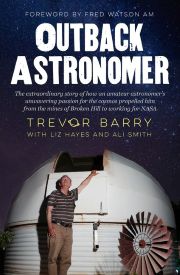
Outback Astronomer
Trevor Barry with Liz Hayes and Ali Smith
Recommended by Emeritus Professor Barbara Nowak FAA
An inspiring feel-good autobiography of Trevor Barry, an amateur outback astronomer, who while working in Broken Hill zinc mine built his own telescope and observatory. His curiosity and passion are impressive and resulted in contribution to NASA research, finishing an astronomy degree and publishing papers in scientific journals. I really enjoyed the style of this book – it reads like a story you would hear over a beer in the pub, but it contains information on the science and history of astronomy and it is a great lesson in communication of science.
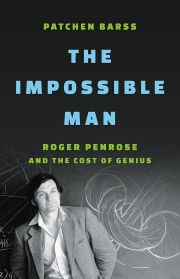
The Impossible Man: Roger Penrose and the cost of genius
Patchen Barss
Recommended by Professor Peter Hannaford AC FAA
The Impossible Man is an intimate biography that explores the life of one of the giants of twentieth-century mathematics and physics, Nobel-Prize-winning mathematical physicist Roger Penrose. It reveals the complex and compelling character of the man alongside the importance of his contributions to geometry, relativity, gravity and cosmology.
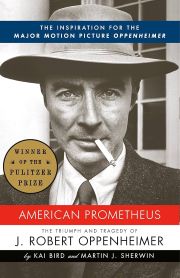
American Prometheus: The triumph and tragedy of J. Robert Oppenheimer
Kai Bird and Martin J. Sherwin
Recommended by Emeritus Professor Cheryl Praeger AC FAA
Beautifully written biography of J. Robert Oppenheimer, brilliant physicist, and ‘father of the atomic bomb’. The book covers his whole life, from childhood, through the scientific excitement at Los Alamos, the unethical ‘trial’ finding that Oppenheimer could not be trusted with America's nuclear secrets, and his later years as director of the Institute for Advanced Study at Princeton. Winner of the Pulitzer Prize 2006, it underpins the 2023 film Oppenheimer.
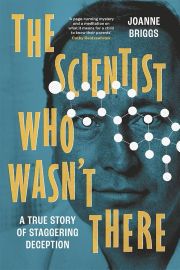
The Scientist Who Wasn’t There: A true story of staggering deception
Joanne Briggs
Recommended by Emeritus Professor Barbara Nowak FAA
A shocking story of deception in science about Michael Briggs, infamous for being the first academic fraud in Australia. This book is a real page-turner and a real-life thriller with the author making comparisons of Briggs to Frank Abagnale Jr (subject of the film Catch Me If You Can) or James Bond. It was written by Briggs’ daughter, a journalist and former barrister, and uncovers new facts about him and raises some new suspicions and speculations. I enjoyed the dry humour and the empathy shown by the author.
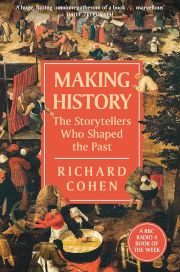
Making History: The storytellers who shaped the past
Richard Cohen
Recommended by Emeritus Professor Harry Poulos AM FAA FTSE
This is a huge but instructive and entertaining book about the writers and recorders of history. It spans from authors in ancient times to the modern-day television presenters of popular history.
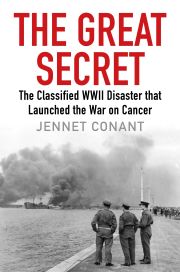
The Great Secret: The classified World War II disaster that launched the war on cancer
Jennet Conant
Recommended by Dr Phil McFadden AO FAA
The classified World War II disaster at Bari that launched the war on cancer. Amazing scientific/sleuth work by Lieutenant Colonel (Dr) Stewart Alexander that shaped the development of effective chemotherapy drugs and protocols.
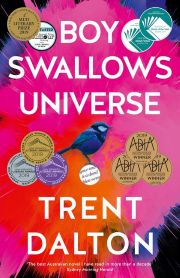
Boy Swallows Universe
Trent Dalton
Recommended by Emerita Professor Mary Garson AM FAA
I intend to reread the novel Boy Swallows Universe, a hilarious black comedy in which Dalton tells the story of Eli Bell and his family involvement in a local crime syndicate. Dalton’s descriptions of Brisbane locations, weather, and unconventional characters – as well as of the darker side of suburban life – are beautifully crafted. The stories come alive because many of the western suburb locations are familiar to me. Reading excellent books is an ideal way to stay out of the Brisbane heat and storms this summer season!
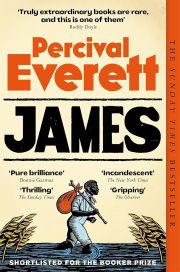
James
Percival Everett
Recommended by Emerita Professor Jennifer Martin AC FAA
The Adventures of Huckleberry Finn retold from the perspective of Jim, a slave. Recommend reading in conjunction with the original story. Will make you angry, uncomfortable, hopeful.
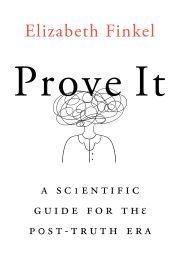
Prove It: A scientific guide for the post-truth era
Elizabeth Finkel
Recommended by Emeritus Professor Robin Batterham AO FAA FTSE
This is a must read for anyone that thinks evidence-based reasoning beats opinions. Elizabeth Finkel has chosen five major topics, each controversial and with captivating writing and well researched data leads the reader through to a sound position. For those like me who believe that truth is always shifting, this book is compulsory reading.
Also recommended by Emeritus Professor Susanne von Caemmerer FAA FRS
At a time when heeding scientific evidence seems to be an optional extra, and the USA is in the process of dismantling any scientific basis for decision-making, Elizabeth Finkel’s book provides a fascinating and relevant view of how science works in the context of several current issues. As she states, “what distinguishes science from conspiracy is that science rejects assertions that fail to clear the bar of evidence.” But understanding how science does this as it is applied to solve a wide range of different problems can be difficult to understand – even for those who work in science. The scientific method can look very different in different contexts as it sets about ‘testing ideas to destruction’. Each section of the book looks at a different issue as diverse as global climate change, understanding human consciousness, and the response to COVID-19, and provides a detailed but easily understood analysis of how scientific thinking was applied to each problem and how governments and society have responded. This book, by an Australian author, makes an important contribution to how we understand science.
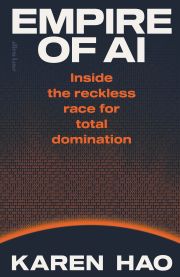
Empire of AI: Inside the reckless race for total domination
Karen Hao
Recommended by Professor Peter Corke FAA FTSE
A recent summary of the state of play in the AI race. It introduces key people, describes their motivations, and dives into some of the lesser-known adverse consequences of this technological race. A hefty but very readable pop-tech book.
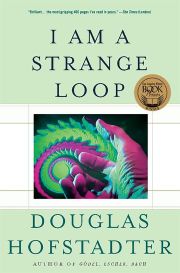
I Am a Strange Loop
Douglas Hofstadter
Recommended by Professor Kylie Catchpole FAA FTSE
I Am a Strange Loop is a glorious examination of self-reference. Language being what it is (with the necessity of subject and object in sentences), I can't tell you how thinking of myself as a feedback loop has changed me. Just read it – you will never think of yourself in the same way again.
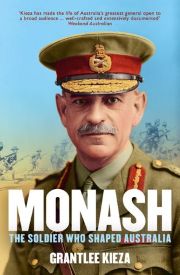
Monash: The soldier who shaped Australia
Grantlee Kieza
Recommended by Professor Nick Martin FAA FAHMS FASSA
Every Australian knows the name Monash, but I wonder how many are aware of the scale and breadth of his achievements. I certainly wasn't. Coming from a very poor German-Jewish immigrant background with an underachieving family, the story of Monash's ascent through extraordinary self-discipline and hard work – not to mention assiduous self-promotion and social climbing – makes compelling reading. And that is before he even gets to WWI, in which many have claimed he played a deciding role in Allied victory. That his achievements are not better recognised is at least in part due to the most appalling anti-Semitism he encountered, worst of all from Prime Minister Billie Hughes. In the wake of October 7 this makes for poignant reading.
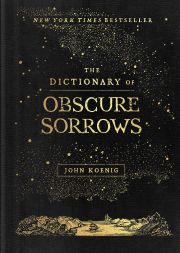
The Dictionary of Obscure Sorrows
John Koenig
Recommended by Professor Robert Williamson FAA
Science can't describe the world without names. Koenig presents a natural history of emotions and proposes new names for complex emotions that are currently anonymous (for example, zielschmerz: the dread of finally pursuing a lifelong dream, and worrying you may well fail; or lutalica: the sense that you're more than the categories that society puts you in). Reading Koenig's delightful book one wonders whether alexithymia [emotional blindness] is simply due to a lack of vocabulary rather than being a disability.
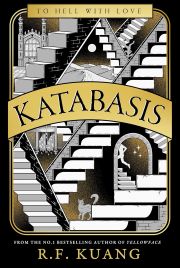
Katabasis
R.F. Kuang
Recommended by Emeritus Professor Barbara Nowak FAA
A satirical fantasy book about two PhD students from Cambridge’s Department of Analytic Magick, searching in Hell for their PhD supervisor Professor Jacob Grimes, department chair, Nobel Prize laureate and twice-elected president of the Royal Academy of Magick. Interestingly, “Hell is a campus”. While the book will particularly resonate with disgruntled PhD students and researchers disenchanted with academia, we can all recognise some aspects of academic life in the Department of Analytic Magick. The author has firsthand experience of academia as she is currently completing her PhD at Yale University and studied sinology at Cambridge and Oxford Universities as a Marshall Scholar. I enjoyed the humour and romance of this interesting and entertaining book.
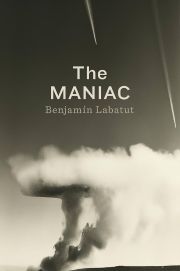
The Maniac
Benjamin Labatut
Recommended by Distinguished Professor Emeritus Frances Separovic AO FAA
A fictional account of the life of the legendary polymath, John von Neumann, this dark and fascinating novel follows von Neumann’s career, and his work on the atomic bomb, computing, and artificial intelligence.
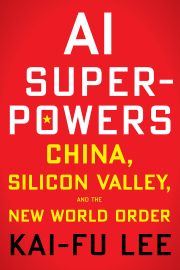
AI Superpowers: China, Silicon Valley and the new world order
Kai-Fu Lee
Recommended by Professor Chennupati Jagadish AC PresAA FTSE FRS FREng
Kai-Fu Lee, a Taiwanese AI researcher who has worked in the US and China, compares and contrasts AI developments in China, the US and the rest of the world. This is an interesting read about how various countries are using AI as a way to influence the world and grow their economies.
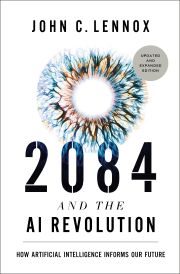
2084 and the AI Revolution: How artificial intelligence informs our future
John C. Lennox
Recommended by Professor Graeme Clark AC FAA FTSE FRS
I found this book enjoyable and was surprised to find it easy bedside reading. I can do no better than quote Professor James Tour, Professor of Chemistry, Materials Science and Nanoengineering at Rice University, who said, “If you plan to read one book on AI this should be it.” Jeremy Gibbons, Professor of Computing at Oxford, also said, “a forceful warning from a Christian perspective about the potential risks of an AI dystopia: algorithmic unfairness, existential threat, transhumanist hubris.”
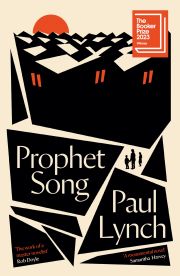
Prophet Song
Paul Lynch
Recommended by Emerita Professor Jennifer Martin AC FAA
Booker Prize Winner 2023. Dystopian novel set in Ireland in the here and now, though it could really be any western democracy. A disturbing, gripping warning of how authoritarianism steadily erodes freedoms and then access to basic needs.
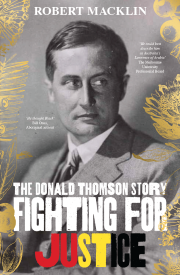
Fighting for Justice: The Donald Thomson story
Robert Macklin
Recommended by Professor Fiona Stanley AC FAA FAHMS(Hon) FASSA
I had known about Thomson and his work in Arnhem Land but not the extent of his progressive anthropological views and deep understanding of the Yolngu people. Biographies are a great way to learn history and Donald's life and work were in competition with the elitist anthropological views of the 1920s and onwards in Australia and internationally. He lobbied intensively and unsuccessfully to protect the Yolngu way of life and culture as a human right with his scholarship eventually being acknowledged too late in the day.
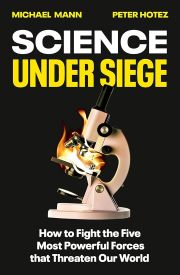
Science Under Siege: How to fight the five most powerful forces that threaten our world
Michael Mann and Peter Hotez
Recommended by Professor David Bowtell FAA FAHMS
Interesting (and somewhat disturbing) account of how organised forces of disinformation have weaponised climate change and COVID-19 to discredit science. Provides an important call for academics to defend evidence-based information.
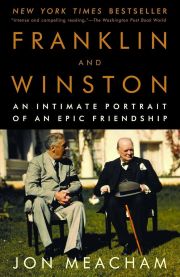
Franklin and Winston: An intimate portrait of an epic friendship
Jon Meacham
Recommended by Emeritus Professor Jeremy Mould FAA
Franklin and Winston is the story of Winston Churchill’s campaign to befriend the President of the United States at a time when Britain was losing every battle with the Nazi war machine and the empire of Japan – an exception being the Battle of Britain, the air war. It is not a war chronicle like Churchill’s six-volume story that begins with The Gathering Storm and appeasement policies; it is a character analysis of these two exceptional and proud men, the one imperialist and prone to rhetorical excess, and the other, a shrewd American patrician who carefully anchored himself to his countrymen and women’s opinion. Both come across as very human, Churchill crazy with schemes, but forgiving when they were touched, and Roosevelt, overcoming his disability, and focused on real progress. Both had to explain themselves to the people they led – FDR with his radio fireside chats and occasional addresses to Congress, and Churchill with frequent public reports to the House of Commons. The result is a piece of human history well worth reading, not least because quirky leaders are a recurring theme.
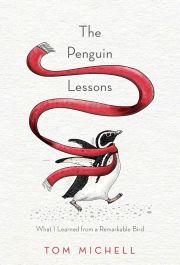
The Penguin Lessons
Tom Michell
Recommended by Professor Georgia Chenevix-Trench FAA
This is a charming story of an English teacher working in Buenos Aires who adopts – or more accurately is adopted by – a penguin called Juan Salvador. The excellent film, starring Steve Coogan, places more emphasis on the upheaval in Argentina in the 1970s – perhaps because they couldn't find a penguin actor good enough to play Juan Salvador. The Audible version is read by Bill Nighy who is perfect in the part. There is also an interesting interview somewhere online that describes how Penguin (the publisher) contacted the author after he self-published on Kindle.
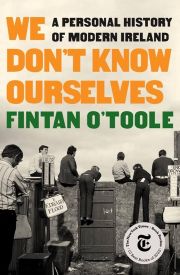
We Don’t Know Ourselves: A personal history of Ireland since 1958
Fintan O’Toole
Recommended by Professor Peter Doherty AC FAA FAHMS FRS Nobel Laureate
Apart from binging on Val McDermid’s Scottish crime novels, I’m currently re-reading Fintan O’Toole’s history, We Don’t Know Ourselves, that gives an incisive, even forensic, account of events in Ireland from 1958. Some of the parallels with what happened here through those years are intriguing. Like Australia, Ireland is an exporting nation, but its biggest export has, for decades, been people!
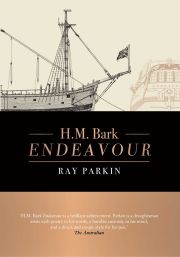
H.M. Bark Endeavour
Ray Parkin
Recommended by Emeritus Professor David Smyth FAA
This scholarly work is in two parts. The first details the setting up of Cook's ship and crew in minute detail and is really of interest only to historians and those ‘mad about boats’. The second is about the Endeavour's voyage north along Australia's east coast, and is a very interesting read with annotated excerpts from the ship's log, and the journals of Cook, Banks and others. One can really relive the sighting of Point Hicks, calling into Botany Bay, negotiating the Great Barrier Reef, and the ship's repair at Cooktown. A great adventure story.
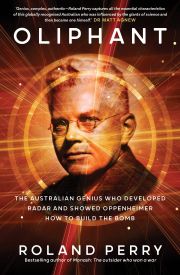
Oliphant: The Australian genius who developed radar and showed Oppenheimer how to build the bomb
Roland Perry
Recommended by Professor Fiona Stanley AC FAA FAHMS(Hon) FASSA
This is a great Australian story – stimulated because Oliphant was excluded from the film about the atomic bomb, Oppenheimer. Oliphant was one of our most brilliant scientists and went to Rutherford's lab in Cambridge as a young physicist from South Australia. During the war he discovered and developed radar, and keen to ensure that the Allies got the bomb before Hitler, his research was the basis for the bomb. He shared this with both Oppenheimer and the Russians to get there first and after Hiroshima and Nagasaki, he lobbied with Oppenheimer to stop it being used again. Oliphant was the first President of the Australian Academy of Science.
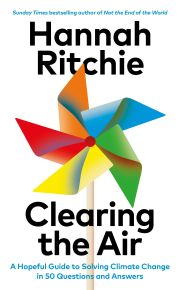
Clearing the Air: A hopeful guide to solving climate change in 50 questions and answers
Hannah Ritchie
Recommended by Emeritus Professor Neville Nicholls FAA
Calmly and persuasively presents the data that show we can, with global efforts, avoid the worst consequences of global warming. If you read only one climate change book, make it this one.
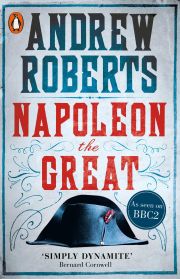
Napoleon the Great
Andrew Roberts
Recommended by Professor Maria Forsyth AM FAA FTSE
Fascinating non-fiction account of the life of Napoleon – from his childhood, schooling, rise though the army, the coup that made him first consul – and, eventually, Emperor – through to his abdication and final years in exile. Based around thousands of surviving written letters to various family, friends and subordinates. Very human.
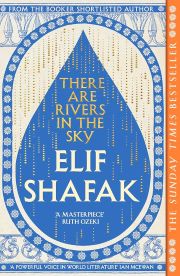
There Are Rivers in the Sky
Elif Shafak
Recommended by Professor Maria Forsyth AM FAA FTSE
A beautifully written book intertwining three characters connected by a drop of water that travels through centuries from ancient Nineveh and Victorian London through to modern Türkiye and modern London. It covers interesting history and diverse cultures, but everything interconnected in the end. Although fictional it is well researched.
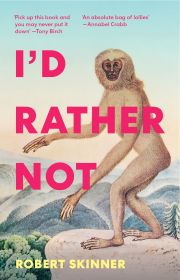
I’d Rather Not
Robert Skinner
Recommended by Emerita Professor Jennifer Martin AC FAA
A little light relief, quasi-antidote to cope with a weary, beleaguered world. This lucky dip of amusing anecdotes and comical conundrums is set (mostly) in Melbourne and Adelaide, so it's easy to picture where the action happens. LOLed throughout.
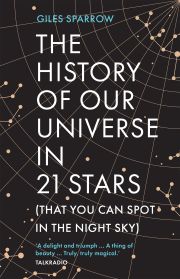
The History of Our Universe in 21 Stars (that you can spot in the night sky)
Giles Sparrow
Recommended by Emeritus Professor Lyn Beazley AO FAA FTSE
The book tells the story of the universe from the Big Bang onwards in an engaging yet scientifically quite advanced way. It documents our understanding from ancient observations to modern astronomy using 21 stars and three non-stars. As a bonus, it guides you to easily locate the objects in the night sky.
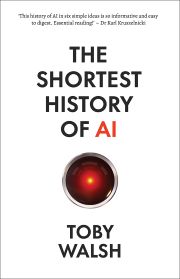
The Shortest History of AI
Toby Walsh
Recommended by Professor Toby Walsh FAA FTSE
The subtitle of the book is ‘Six ideas are all you need to know’. AI has been around since 18 June 1956. Find out more about our ongoing journey to build artificial minds in this short and entertaining history.
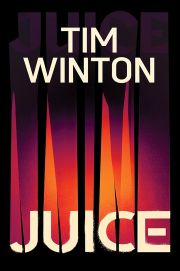
Juice
Tim Winton
Recommended by Professor Emeritus Michael Hynes FAA
I read this dystopian novel by the famed Western Australian almost one year ago. Unlike many of the books I have read in the ensuing months its impact remains. In particular, images of summers spent completely underground and vigilante organisations waging war against clans of fossil fuel providers in their fortresses. The issues arising in 2025 from the policies of world governments regarding climate change indicate that this is the future for my grandchildren.
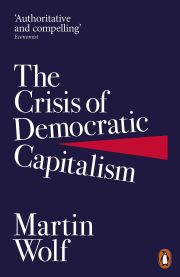
The Crisis of Democratic Capitalism
Martin Wolf
Recommended by Dr Phil McFadden AO FAA
A magnificent reckoning of how and why the marriage between democracy and capitalism is coming undone all over the world, and what can be done to save it.
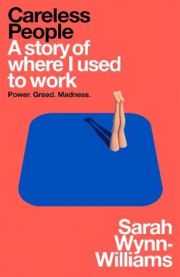
Careless People: A cautionary tale of power, greed, and lost idealism
Sarah Wynn-Williams
Recommended by Emeritus Professor Ross Street FAA
On the first page we are led in with the sentence: “My childhood was pretty normal, I guess, except for the time I was attacked by a shark.” And from that point on, I was hooked. The book reveals how the world now works under the control of “careless people”. The mixture of the author's own life and the workings of the senior Facebook people makes for a page-turner with a scary message.
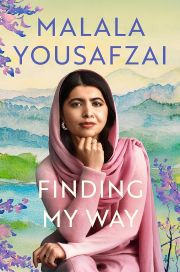
Finding My Way
Malala Yousafzai
Recommended by Emerita Professor Mary Garson AM FAA
Malala Yousafzai’s latest book Finding My Way reveals the real persona behind the Nobel Peace Laureate activist and explores her struggles growing up with fame.
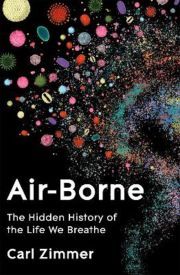
Air-Borne: The hidden history of the life we breathe
Carl Zimmer
Recommended by Distinguished Professor Lidia Morawska FAA FTSE
There is nothing more fundamental to our existence than breathing. Without air, we would die in a matter of minutes. But the consequences of inhaling airborne pathogens are profound and understanding them is important to our protection. That’s why this book is both fascinating and important.
Children's books
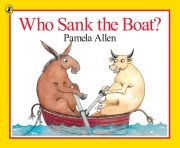
Who Sank the Boat?
Pamela Allen
Recommended by Professor Georgia Chenevix-Trench FAA
A popular children's book that introduces many key scientific principles, especially in physics, biology, epidemiology and scientific reasoning.
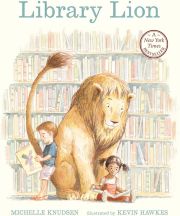
Library Lion
Michelle Knudsen
Recommended by Scientia Professor Helen Christensen AO FAA FAHMS FASSA
An exciting story of a lion, a library, a broken arm and breaking rules. Suitable for children 2 years old and up.
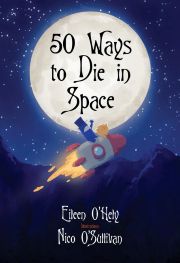
50 Ways to Die in Space
Eileen O’Hely, illustrated by Nico O’Sullivan
Recommended by Professor Tamara Davis AM FAA
Hilarious and captivating take on all the ways to die in space. It's a graphic novel following the story of a grumpy grandfather warning his grandchild of all the gruesome ways to die in space. The author has a PhD in astrophysics, and has done a brilliant job of getting real science across in an entertaining and joyful manner.
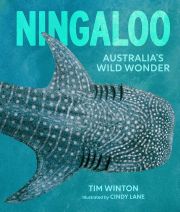
Ningaloo: Australia’s wild wonder
Tim Winton, illustrated by Cindy Lane
Recommended by Professor Fiona Stanley AC FAA FAHMS(Hon) FASSA
This beautifully produced older children's book is based on the impressive three-hour ABC documentary which Tim produced on the Ningaloo Reef, the Cape Range National Park and Exmouth Gulf in the North of WA. It illustrates clearly how the three areas are interdependent – with descriptions of the history, geology, ecology, and plant and animal life. It provides children with the wonder of the wild and all the arguments needed to protect it. The illustrations make the book come alive.
Podcasts
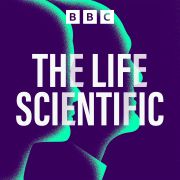
The Life Scientific
Jim Al-Khalili
Recommended by Emerita Professor Jennifer Martin AC FAA
Jim Al-Khalili interviews scientists. He asks how they became scientists, what their science entails, how their breakthroughs impact our lives. A fascinating insight into the myriad ways people find facts, discover and detect, innovate and invent.
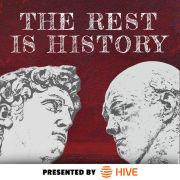
The Rest is History
Tom Holland and Dominic Sandbrook
Recommended by Professor Thomas Maschmeyer AO FAA FTSE
Join Dominic and Tom as they discuss Harald Hardrada’s astonishing time as a Varangian Guard in Constantinople, his hair-raising escape back to Scandinavia, and his fight for the throne of Norway, on the road to the dramatic climax of his epic life: the Battle of Stamford Bridge in 1066.
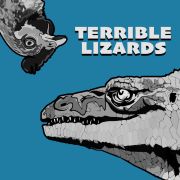
Terrible Lizards
David Hone and Iszi Lawrence
Recommended by Professor Andrew White FAA
A tremendous amount of fun as two former uni friends reunite – due to the pandemic – to make a podcast about dinosaurs, pterosaurs, marine reptiles, and more. Informed by the latest research, with interviews with current practitioners from all over the world, and discussion ranging from recent papers to movies, it never for a minute talks down to the audience. For the latest on stompity-stomps and flappy-flaps there is no finer podcast.
Television
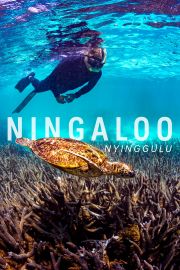
Ningaloo Nyinggulu
ABC
Recommended by Professor Fiona Stanley AC FAA FAHMS(Hon) FASSA
An outstanding wildlife documentary about Ningaloo Reef, Cape Range National Park and Exmouth Gulf. Produced and written by Tim Winton, it shows the incredible interdependence of these three ecosystems. It makes the case for protecting this pristine environment and was instrumental in the WA Government’s decision to create a protected marine park there.
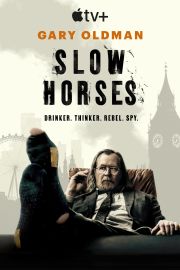
Slow Horses
Apple TV
Recommended by Emerita Professor Jennifer Martin AC FAA
Gripping,* edge-of-the-seat MI5 misfit spy drama. Each new series surpasses its predecessor in absurdity, dysfunctionality, unconventionality.
*May be watched while peeking through fingers.





